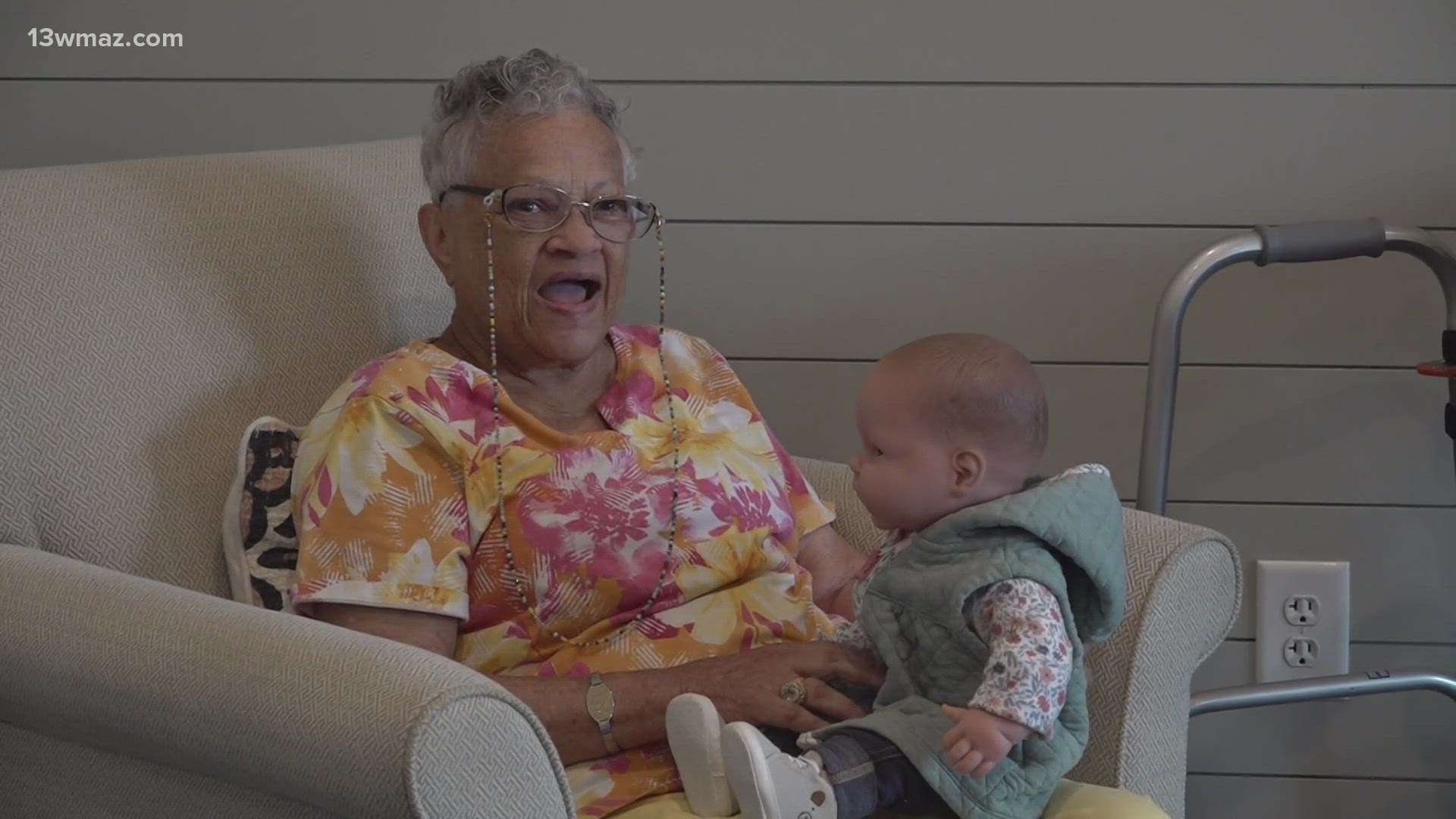WARNER ROBINS, Ga. — The Phoenix at Lake Joy Senior Living Community now uses dementia therapy dolls that look like babies to help its memory care residents.
The Grand Baby Project is the non-profit bringing them to life. The $75 dolls are specially designed for people with dementia.
"You'll notice that they don't have eyelashes that can become an agitation for someone with dementia; they'll start picking and that can cause anxiety,” Lynch said. “You'll notice that they don't have actual hair. So, for sanitary purposes, they can be easily disinfected."
Program and Outreach Coordinator Carrie Lynch is certified in dementia doll therapy. She said whether the resident knows the baby is real or not, part of the therapy gives them the choice to interact.
"At this stage in their dementia or Alzheimer's, they don't really get an opportunity to say no to a lot of things as far as showers and when to eat and all that,” Lynch said. “So if you present the baby and they don't want to have anything to do with it and you say, ‘would you like to hold this baby,’ and they say no, that can also be empowering too."
Lynch said doll therapy can reduce agitation, anxiety, falls, improve sleeping and reduce the need for some medications.
"If you have someone that's very agitated, a lot of times if you can get their attention redirected to a baby, they'll instantly calm down because number one, they probably don't want to act that way around the child and then also it can give them something to do to redirect their attention," she said.
Community Engagement Director Michelle Sluka said the main benefit of the babies is providing memory care patients with a sense of purpose again.
"It's so important as we age that we continue to have a sense of purpose and especially when we have a diagnosis of dementia or Alzheimer's,” Sluka said. “A lot of times I hear families come in and tell me they just don't know what they're supposed to be doing They ask all day long, ‘what am I supposed to do?’ So this doll therapy I think will really help bridge that gap."
Right now, the center has only two therapy doll babies. But Sulka said they have 34 memory and care residents, so they hope to buy enough for all of them. She said they are halfway to their goal to buy enough dolls for the therapy program. If you would like to donate, click here.

